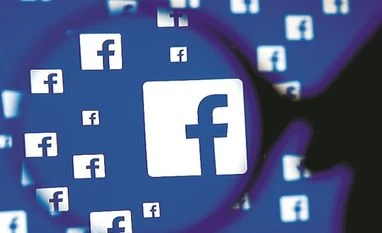From the spread of fake news to a nasty court fight in Texas, it has been a rough few months for Facebook. But company executives can take heart in two things: Despite an audience nudging toward two billion users, more and more people are still flocking to the service, and more and more advertisers are spending money on it.
Facebook’s fourth-quarter sales, announced Wednesday, handily beat Wall Street estimates. And even a $500 million jury verdict that went against the company earlier in the day did little to diminish enthusiasm about its finances.
Facebook said sales had totalled $8.8 billion in the fourth quarter of 2016, up 51 per cent compared with a year ago, surpassing analysts’ expectations of $8.5 billion. Not surprisingly, user growth is at a peak. The announcement of the blockbuster quarter comes as Facebook grapples with complaints that it has not done enough to stem the rise of false news stories and misinformation across the social network. Since those complaints began to mount, Facebook has started to address the problem.
“In the past we’ve taken steps to reduce spam and clickbait, and now we’re approaching misinformation and hoaxes the same way,” Mark Zuckerberg, Facebook’s chief executive, said during a conference call with investors. He pointed to the company’s closer ties to publishers and fact-checking organisations and the high priority it had placed on making changes to its news feed and ad network.
The controversy over fake news seemed to have little effect on users’ appetite for the website. Total profit for the quarter was $3.6 billion, annual ad revenue was up roughly $10 billion compared with 2015, and more than half of the site’s 1.86 billion regular visitors used it daily. Against that backdrop, a jury verdict on Wednesday in a high-profile legal fight in federal court in Texas over virtual reality technology made by Facebook’s Oculus division did not appear to faze company executives.
“The verdict is nonmaterial to our business,” Sheryl K Sandberg, Facebook’s chief operating officer, said in an interview.
“We had a really strong quarter, capping off a really great year.”
Facebook paid $2 billion to acquire Oculus, which makes a headset, the Rift, that immerses users in 3-D games and videos. Mr. Zuckerberg has predicted that virtual reality could be the next big computing platform, like the smartphones of today or the personal computers of a decade ago.
The financial damages were far lower than the $4 billion the plaintiff, the games publisher ZeniMax Media, had sought, in part because the jury was unmoved by its argument that Oculus employees stole ZeniMax trade secrets.
In a statement, Tera Randall, a spokeswoman for Oculus, said the company planned to appeal the verdict.
“The heart of this case was about whether Oculus stole ZeniMax’s trade secrets, and the jury found decisively in our favor,” she said. “We’re obviously disappointed by a few other aspects of today’s verdict, but we are undeterred.”
The damages were nonetheless meaningful to ZeniMax, which publishes the Elder Scrolls series, the Fallout series and other well-known video games. The jury based the damages award on finding a series of copyright and trademark violations involving ZeniMax software by one or more of the defendants, a group that included Oculus and several of its employees.
The biggest portion of the award stemmed from the finding that Palmer Luckey, an Oculus founder, had violated a confidentiality agreement he signed with ZeniMax as he was forming Oculus. ZeniMax said it was exploring options for preventing Oculus from its continued use of computer code that infringes on ZeniMax copyrights, including seeking a court order.
“Technology is the foundation of our business, and we consider the theft of our intellectual property to be a serious matter,” said Robert Altman, ZeniMax’s chairman and chief executive. “We appreciate the jury’s finding against the defendants and the award of half a billion dollars in damages for those serious violations.”
That figure may decrease as litigation between the companies continues. But Facebook may not be too worried about it.
As the results announced Wednesday showed, Facebook’s dominance in internet advertising is surpassed only by Google’s. And Ms. Sandberg’s latest efforts to woo small businesses are paying off: Tens of millions of businesses market their products across Facebook and Instagram, the photo-sharing app it owns.
Shares of Facebook rose 2.5 per cent, to $136.69, in after-hours trading.
Wall Street is looking for Facebook to show revenue growth outside its news feed, the social network’s moneymaking ad machine. The company has cautioned analysts that it is nearing the limit of its ad load — the amount of ads it chooses to place between user-posted content like news stories and status updates — inside the feed.
That means increased pressure on properties like Instagram, which recently announced that it had more than 600 million users.
Although Facebook does not disclose revenue figures for Instagram, it said on Wednesday that five million businesses were now on the app and that its latest feature — a messaging service similar to Snapchat — was already being used by a quarter of Instagram’s user base.
Unlock 30+ premium stories daily hand-picked by our editors, across devices on browser and app.
Pick your 5 favourite companies, get a daily email with all news updates on them.
Full access to our intuitive epaper - clip, save, share articles from any device; newspaper archives from 2006.
Preferential invites to Business Standard events.
Curated newsletters on markets, personal finance, policy & politics, start-ups, technology, and more.
)